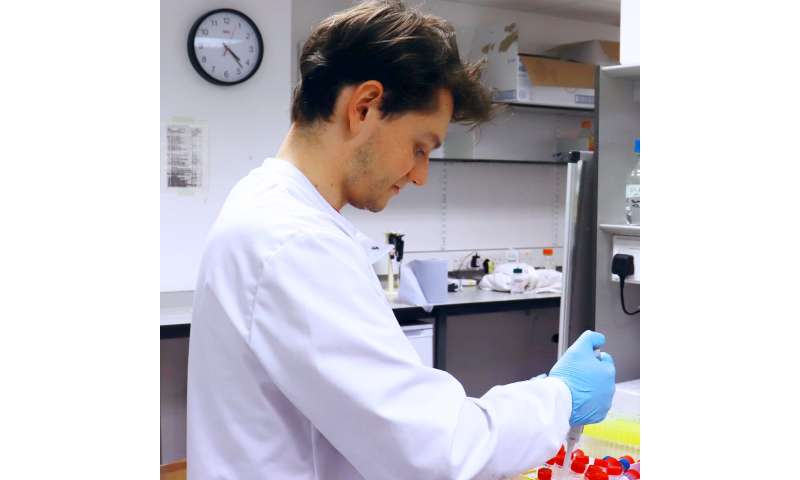#Sustainable nylon production made possible by bacteria discovery
“#Sustainable nylon production made possible by bacteria discovery”

Nylon manufacture could be revolutionized by the discovery that bacteria can make a key chemical involved in the process, without emitting harmful greenhouse gases.
Scientists have developed a sustainable method of making one of the most valuable industrial chemicals in the world—known as adipic acid—which is a key component of the material.
More than two million tons of the versatile fabric—used to make clothing, furniture and parachutes—is produced globally each year, with a market value of around £5 billion.
Industrial production of adipic acid relies on fossil fuels and produces large amounts of nitrous oxide—a greenhouse gas three hundred times more potent than carbon dioxide. A sustainable production method is urgently required to reduce the damage caused to the environment, the team says.
Scientists from the University of Edinburgh altered the genetic code of the common bacteria E.coli in the lab. The modified cells were grown in liquid solutions containing a naturally occurring chemical, called guaiacol, which is the main component of a compound that gives plants their shape.
Following a 24-hour incubation period, the modified bacteria transformed the guaiacol into adipic acid, without producing nitrous oxide.
The environmentally friendly approach could be scaled up to make adipic acid on an industrial scale, researchers say.
The study is published in ACS Synthetic Biology. It was funded by the Carnegie Trust and UK Research and Innovation.
Lead author Jack Suitor, a Ph.D. student in the University of Edinburgh’s School of Biological Sciences, said the team is continually exploring new ways of using bacteria to produce chemicals.
He said: “I am really excited by these results. It is the first time adipic acid has been made directly from guaiacol, which is one of the largest untapped renewable resources on the planet. This could entirely change how nylon is made.”
Dr. Stephen Wallace, Principle Investigator of the study, and a UKRI Future Leaders Fellow suggested microbes could help solve many other problems facing society.
He said: “If bacteria can be programmed to help make nylon from plant waste—something that cannot be achieved using traditional chemical methods—we must ask ourselves what else they could do, and where the limits lie. We are all familiar with the use of microbes to ferment food and beer—now we can ferment materials and medicines. The possibilities of this approach to create a sustainable future are staggering.”
More information:
Jack T. Suitor et al, One-Pot Synthesis of Adipic Acid from Guaiacol in Escherichia coli, ACS Synthetic Biology (2020). DOI: 10.1021/acssynbio.0c00254
Sustainable nylon production made possible by bacteria discovery (2020, August 13)
retrieved 13 August 2020
from https://phys.org/news/2020-08-sustainable-nylon-production-bacteria-discovery.html
This document is subject to copyright. Apart from any fair dealing for the purpose of private study or research, no
part may be reproduced without the written permission. The content is provided for information purposes only.
If you want to read more Like this articles, you can visit our Science category.
if you want to watch Movies or Tv Shows go to Dizi.BuradaBiliyorum.Com for forums sites go to Forum.BuradaBiliyorum.Com




